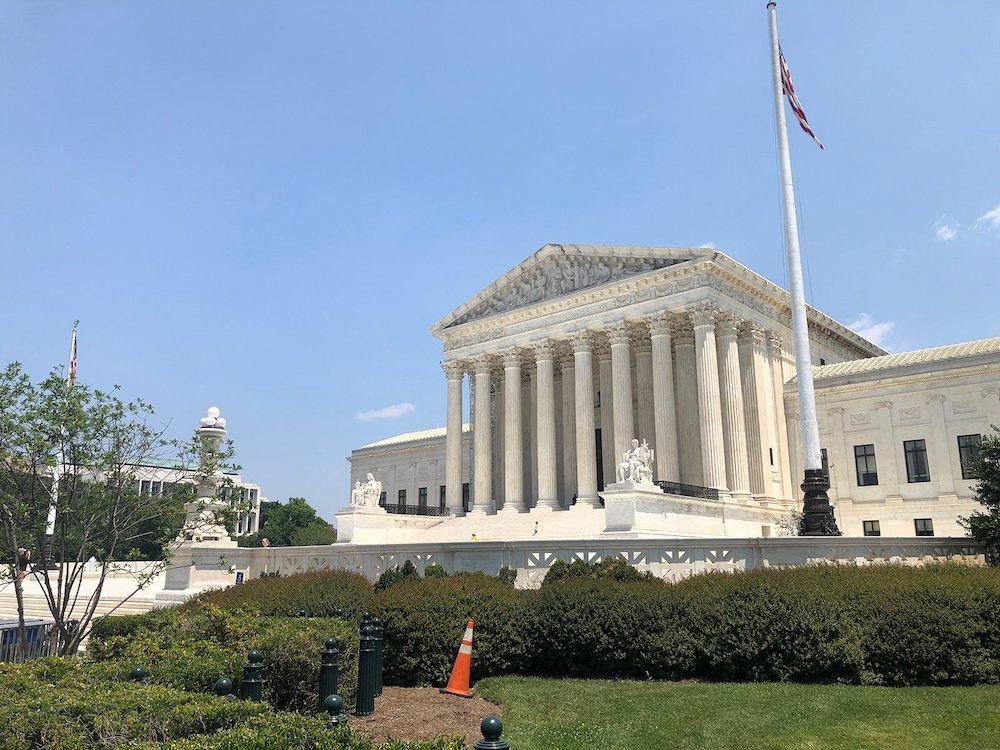border
Supreme Court Ruling: Judges Denied Power to Challenge Visa Denials Based on Sham Marriages

The Supreme Court ruled on Tuesday that a U.S. citizen does not have the right to challenge her husband’s visa denial following the discovery of his earlier fraudulent marriage. In a unanimous decision, the justices concluded that federal courts do not possess authority to review specific discretionary actions taken by federal agencies, including the U.S. Customs and Immigration Services (USCIS).
Justice Ketanji Brown Jackson highlighted Congressional intent, stating that the Secretary of Homeland Security is granted broad powers to revoke visa approvals at any time for valid reasons. She pointed to two federal statutes that underpin this authority: Section 1155 permits such revocations for good cause, while Section 1252 limits judicial oversight on discretionary matters.
Amina Bouarfa, a U.S. citizen, married Palestinian national Ala’a Hamayel in 2011. Three years later, she sought to classify him as an immediate relative eligible for permanent immigration status. USCIS initially approved this petition in 2015, but later retracted it after evidence emerged that Hamayel’s prior marriage was a sham aimed at evading immigration laws.
The agency noted that Hamayel’s ex-wife had described their marriage as fraudulent and claimed he had to pay her $5,000 to file a visa petition. Bouarfa contested this assertion, arguing that the ex-wife retracted her statements, claiming they were made under duress.
Despite her efforts, the agency maintained that there was substantial evidence indicating Hamayel’s prior marriage served to gain immigration benefits. When an immigration board upheld the agency’s decision, Bouarfa took her case to a Florida federal court, which dismissed it on jurisdictional grounds, stating that the decision was a correct exercise of agency discretion.
In her appeal to the Supreme Court, Bouarfa argued that federal judges should be allowed to examine non-discretionary agency decisions. She maintained that since the government consistently denies visa petitions linked to fraudulent marriages, her husband’s application warranted judicial review. Jackson acknowledged that Bouarfa’s assertion was likely correct, noting the government’s inability to provide contrary examples.
Nonetheless, she emphasized that the potential for judicial review does not hinge on agency practices. The consistency of agency decisions, Jackson argued, should be viewed positively rather than negatively. She cautioned against adopting a theory that could lead to arbitrary agency actions or jeopardize insulation from judicial scrutiny.
The high court’s decision aims to resolve existing discrepancies among U.S. circuit courts regarding the authority to review the Secretary’s revocation decisions. Some circuits permit such reviews under certain circumstances, while others do not.
During the October oral arguments, Bouarfa stressed the significant implications of the justices’ ruling. If Hamayel is forced to reapply, it would negate years of progress. Attorney Samir Deger-Sen described the potential outcome as “life-altering” for Bouarfa and Hamayel.
Despite the ruling, Bouarfa has submitted a new petition on Hamayel’s behalf. Jackson clarified that if this petition is denied based on the sham-marriage assessment, Bouarfa could pursue judicial review at that juncture.

















